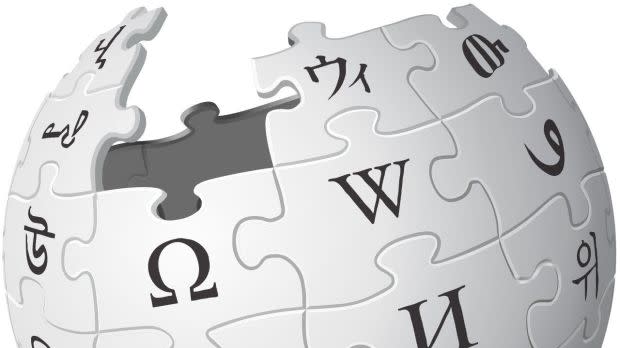Africans are trying to fix Wikipedia’s language problem

Although Wikipedia is an important source of knowledge and one of the world’s most-visited websites, it has a scarcity of content in African languages. To put this into perspective, Swahili Wikipedia has about 69,000 articles, the most of any African-language edition, compared to 6.45 million for the top-ranked English Wikipedia.
But a growing movement in the continent is working to increase African-language content in the online encyclopedia by equipping Africans with tools to create Wikipedia articles in their own languages. As part of it, three Wikipedia AfroCuration “edit-a-thons”, or workshops, have taken place recently—separately in Mozambique, South Africa then Zimbabwe—resulting in volunteers creating and editing of hundreds of Wikipedia articles.
“Unless you amplify our history it’s gonna die,” says Lwando Xaso, who organized the South African event through the country’s Constitution Hill Trust, a public-benefit organization.
There’s a language divide and digital knowledge gap
African languages are often marginalized in tech, with lack of proper representation in areas such as voice recognition and online learning and knowledge resources. This creates a language divide and a digital knowledge gap that pushes low-income populations and languages that are less widely spoken globally to the periphery. It also prevents some users from benefiting from these technological applications for their own development.
But increasingly, Africans in tech are working to correct these omissions by shaping their own course and taking tech in the direction that would make it most beneficial for themselves. These initiatives mostly by Africans for Africans extend beyond language use, to other aspects such as fighting for digital rights and equipping women with the tools to combat online violence.
“The survival and growth of African languages will be enhanced by Africans creating knowledge about their cultures in African languages on Internet-based knowledge websites,” says Joyce Nyairo, a Nairobi-based cultural analyst. These sites, she adds, are now a critical space for the amplification of locally-produced knowledge.
Volunteers in Wikipedia “edit-a-thons” learn how to create content
In the Wikipedia “edit-a-thons,” which take place online over two days, participants are taught the basics of Wikipedia and writing, editing, and translating articles for the encyclopedia. Lessons include putting references, adding images, and sharing the work. The volunteers then write and edit actual articles. Guest speakers also speak to them for inspiration.
Unless you amplify our history it’s gonna die.
The content worked on is based on a theme for each workshop. For example, the theme for the South African event was the history of women in South Africa and how they contributed to ending apartheid and writing the country’s current constitution. This is notable because globally only 20% of Wikipedia biographies are about women, with the figures for Africa being even worse. For the Zimbabwean one, it was the country’s cultural landscape.
Workshop participants worked on hundreds of Wikipedia articles
In total, 135 volunteers participated in the three workshops and they have so far written more than 240 articles and edited more than 290.
Africans writing in their own languages for a platform such as Wikipedia is important “so that the information and knowledge will be passed to generation to generation,” says Lindokuhle Mdluli, a supermarket cashier who took part in the South African workshop.
Mdluli, a native isiZulu speaker, wrote her first Wikipedia articles at the “edit-a-thon.”
“Our native languages are very important,” she tells Quartz. “I will try my best to write all the articles in the world if I can in isiZulu so that it can be passed to generation to generation because this information is very important.”
Other participants, such as Khethiwe Marais, had prior experience creating Wikipedia content. As an editor, rewriter, and translator of academic and other material, Marais had been translating Wikipedia articles for about three years, working in isiZulu and Tsonga.
“If you search in Wikipedia, you find loads of information in every field you can think of, in every sphere, in every sector in English,” she says. “But that is not available in our languages and it is upon us as language activists to participate in creating that content in our languages and make it accessible and available to everybody who is a speaker or user of that language, or reader of that language.”
We have multiple truths, and truths that are spoken in different languages, not just in English.
The AfroCuration series is organized by WikiAfrica Education, a project of the Moleskine Foundation, an Italy-based nonprofit. It partners with local cultural institutions to hold the workshops, and the cultural institutions call out for volunteers.
Xaso, the South African organizer, reckons some of the significances of Africans creating knowledge about their culture on platforms such as Wikipedia is that it preserves languages and creates a space online where African languages can thrive. Another, she says, is that it helps development in the virtual world in that algorithms must take into account people that speak in different languages and take their knowledge in their native tongue.
“We have multiple truths, and truths that are spoken in different languages, not just in English,” she says. “I think the truth hits differently when it’s in your own language.”
Sign up to the Quartz Africa Weekly Brief here for news and analysis on African business, tech, and innovation in your inbox.
Sign up for the Quartz Daily Brief, our free daily newsletter with the world’s most important and interesting news.
More stories from Quartz:
